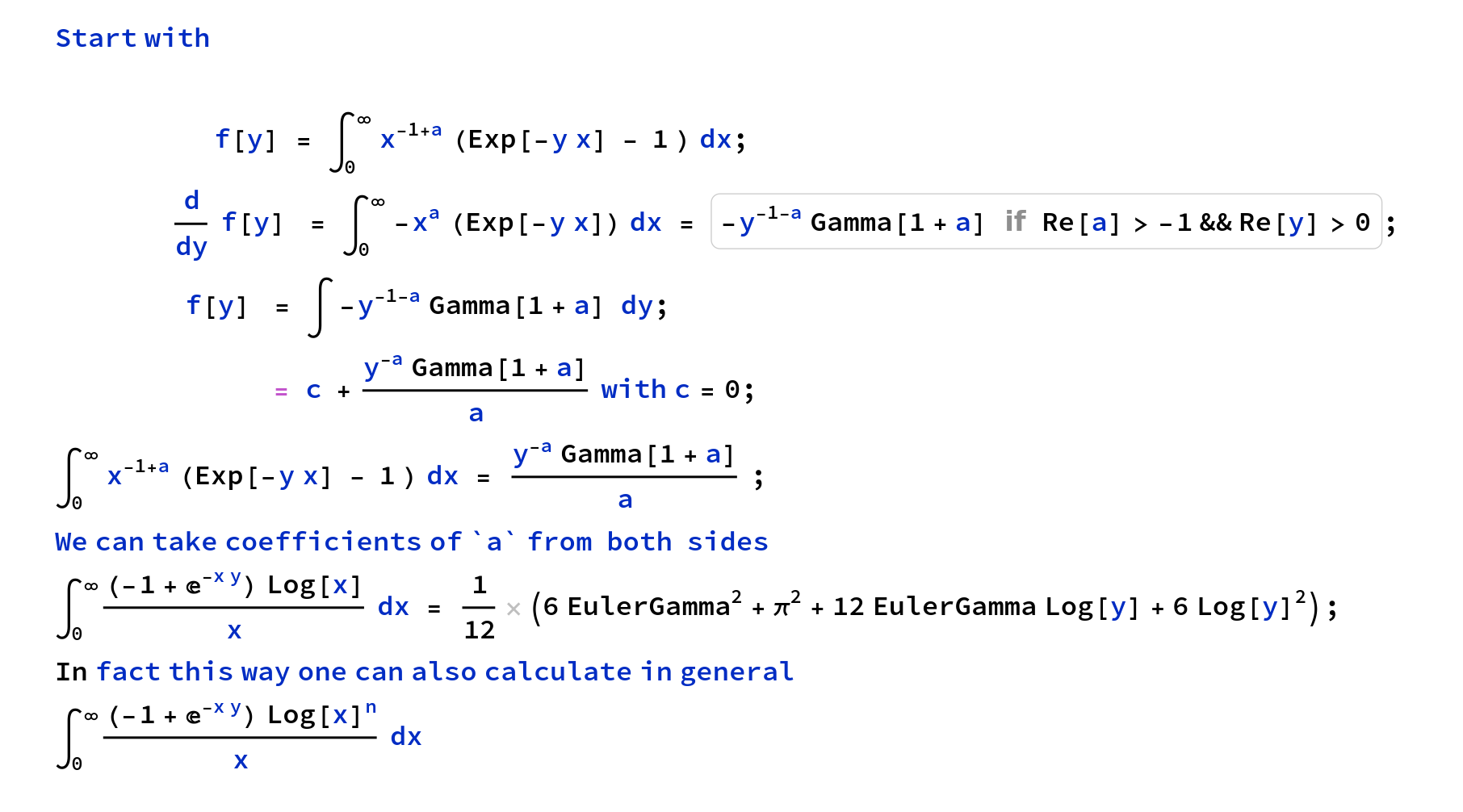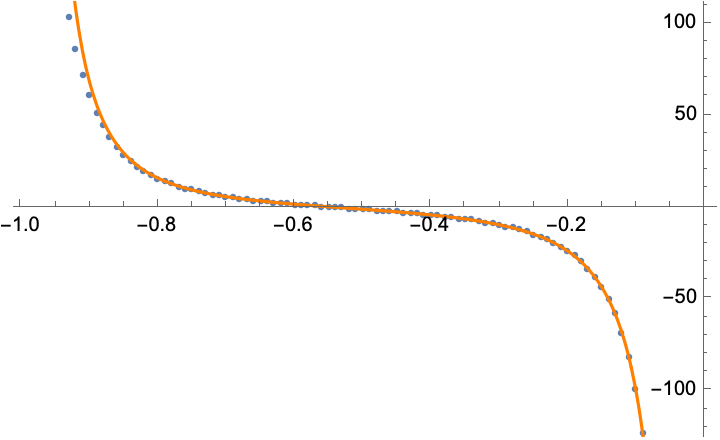I have a couple of modules (Laplace transformation of Plus-distributions) that were completely straightforward to integrate with version 12.0.0. However, recently with versions 12.3.1, and 13.0.1 it seems not that straightforward.
Example:
Integrate[Log[x]/x (Exp[-x*y]-1),{x,0,Infinity},GenerateConditions->False]
(**version 12.0.0**)
(6 EulerGamma^2 + Pi^2 + 6 Log[y] (2 EulerGamma + Log[y]) )/12
The version 12.0.0 just spilled out the results instantly whereas on the other hand
versions 12.3.1, and 13.0.1 does not even perform the integration.
Of course, there are different ways to perform the integration (and to implement it in the newer versions), but it is really surprising how the newer versions become worse day by day without backward compatibility for such basic features (or not that basic? at least it was nice in version 12.0.0)!
Edit
I thought that Mathematica 12.0.0 is giving the correct result.
I tried to derive this in a way (not sure if this is correct though, always there are deep mathematical constraints that are not naively imaginable).
With this method, I can produce the results by Mathematica 12.0.0.


